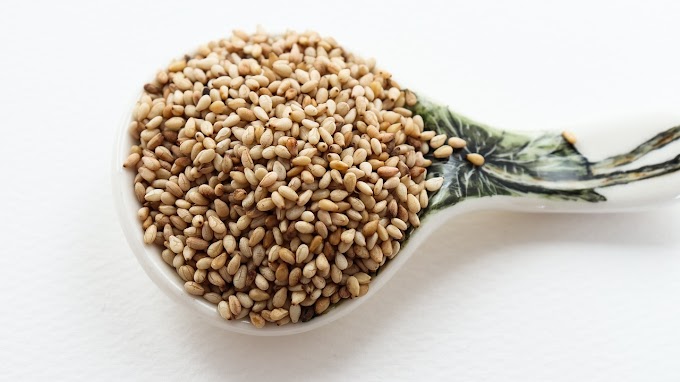Control your diet for weight loss
Controlling your diet is crucial for weight loss, and overcoming the habit of overeating requires mindful strategies. Here are six tips to help you break free from the cycle of overindulgence and achieve a healthier, fitter lifestyle:1. Avoid Stress Eating:
Stress is a common trigger for overeating, often used as a source of comfort. Combat this habit by finding alternative stress-management techniques such as exercise, meditation, deep breathing, or engaging in hobbies. Redirecting your focus can help break the connection between stress and unhealthy eating.2. Maintain a Regular Sleep Schedule:
Lack of sleep disrupts appetite-regulating hormones, increasing hunger and cravings. Research indicates that inadequate sleep is linked to elevated levels of appetite-stimulating hormones and reduced levels of the satisfaction hormone leptin. Prioritize a consistent sleep routine to regulate these hormones and reduce the likelihood of overeating.3. Stay Hydrated:
Drinking an ample amount of water throughout the day is essential for overall well-being and can prevent unnecessary snacking. Sometimes, the body confuses thirst for hunger, leading to unnecessary calorie consumption. Keep a water bottle handy and drink regularly. Consuming water before meals can create a sense of fullness, reducing the temptation to overeat.4. Track Your Progress:
Keeping a food journal or using a mobile app to record meals, snacks, and associated emotions increases awareness of eating patterns. This practice helps identify triggers that lead to overeating. Monitoring your progress also allows you to celebrate achievements and make necessary adjustments to your approach.5. Include Satisfying Foods:
Incorporate foods that provide lasting satiety, helping prevent overeating and supporting weight loss. Opt for fiber-rich foods such as whole grains, fruits, and vegetables. Additionally, include protein-rich foods like lean meats, poultry, fish, legumes, and dairy, as they contribute to a feeling of fullness and reduce cravings.6. Avoid Eating While Watching TV:
Mindless eating often occurs when watching TV or engaging in other distracting activities. Research suggests that practicing mindfulness during meals reduces food intake and enhances the enjoyment of eating. Create a designated eating area without distractions, focus on the sensory experience of eating, and pay attention to hunger and fullness cues.Seeking Professional Guidance:
Consider seeking support from a registered dietitian or a healthcare professional who can offer personalized advice and accountability on your weight loss journey.By implementing these tips and adopting a holistic approach to your diet and well-being, you can cultivate a healthier relationship with food and regain control over your eating habits.
 |
| Weight Loss |
1. Why is stress eating mentioned as a common trigger for overeating in the article?
Stress eating is highlighted because it often leads to mindless consumption of comfort foods, contributing to overeating. The article suggests alternative stress-management techniques to break this habit.
2. How does lack of sleep impact appetite-regulating hormones, and why is it relevant to overeating?
2. How does lack of sleep impact appetite-regulating hormones, and why is it relevant to overeating?
The article explains that inadequate sleep disrupts hormones, increasing hunger and cravings while reducing the satisfaction hormone leptin. This hormonal imbalance can result in overeating.
3. How does staying hydrated contribute to preventing overeating, according to the article?
3. How does staying hydrated contribute to preventing overeating, according to the article?
The article suggests that the body sometimes confuses thirst for hunger, leading to unnecessary snacking. By staying hydrated, individuals can avoid unnecessary calorie consumption and reduce the likelihood of overeating.
4. What role do fiber-rich and protein-rich foods play in preventing overeating and promoting weight loss?
The article explains that these foods provide lasting satiety, reducing the temptation to overeat. Fiber-rich foods include whole grains, fruits, and vegetables, while protein-rich foods encompass lean meats, poultry, fish, legumes, and dairy.
5. How does eating while watching TV contribute to overeating, and what does the article recommend as an alternative?
5. How does eating while watching TV contribute to overeating, and what does the article recommend as an alternative?
Mindless eating during TV watching can lead to overconsumption. The article suggests creating a designated eating area without distractions, practicing mindfulness, and focusing on sensory experiences during meals.
6. Can you explain the importance of seeking professional guidance for weight loss mentioned in the article?
6. Can you explain the importance of seeking professional guidance for weight loss mentioned in the article?
Seeking support from a registered dietitian or healthcare professional is emphasized for personalized advice and accountability throughout the weight loss journey.
7. Why is a food journal or mobile app suggested for tracking meals and emotions?
7. Why is a food journal or mobile app suggested for tracking meals and emotions?
Keeping a record of meals and emotions increases self-awareness, helping individuals identify patterns and triggers associated with overeating.
8. How does lack of sleep affect appetite hormones, and what does the article recommend for maintaining a consistent sleep schedule?
8. How does lack of sleep affect appetite hormones, and what does the article recommend for maintaining a consistent sleep schedule?
The article mentions that lack of sleep disrupts appetite-regulating hormones, leading to increased hunger and cravings. A consistent sleep schedule is recommended to regulate these hormones and reduce the risk of overeating.
9. How can incorporating satisfying foods, such as fiber-rich and protein-rich options, contribute to weight loss?
9. How can incorporating satisfying foods, such as fiber-rich and protein-rich options, contribute to weight loss?
The article explains that these foods create a sense of fullness, reducing cravings and the likelihood of overeating. Satisfying foods plays a crucial role in promoting a healthier relationship with food and supporting weight loss.







